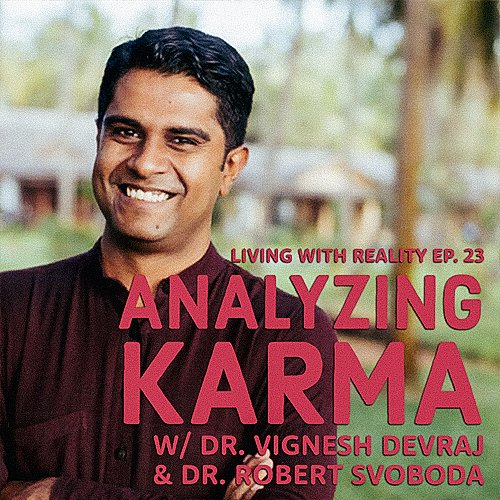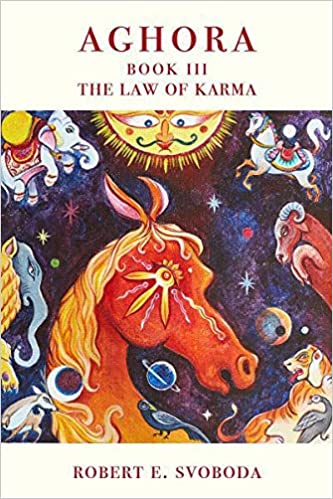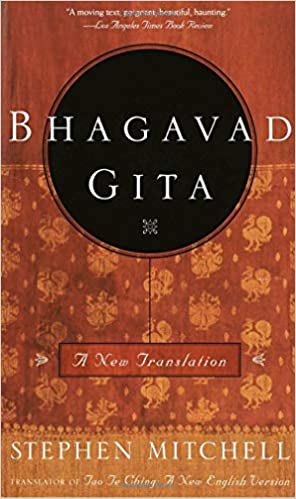
Dr. Robert Svoboda shares a conversation with Dr. Vignesh Devraj that centers on analyzing karma, looking at whether karma is knowable, and dealing with karmic patterns and obligations.
This week’s Living with Reality Podcast features a conversation between Dr. Svoboda and Dr. Vignesh Devraj that took place on the Ayurvedic Healing and Beyond Podcast. Dr. Devraj is a fourth-generation Ayurvedic healer. Learn more about him at vigneshdevraj.com.
Go to drsvoboda.teachable.com to study with Dr. Svoboda and learn more about topics such as karma and Ayurveda.
Analyzing Karma
Dr. Devraj dives straight into the topic of karma, asking about Dr. Svoboda’s book, Analyzing Karma. They discuss how some patients of Ayurveda feel like they are victims of karma. Dr. Svoboda lays out how karmas work in all directions at all times, they are stored in the fabric of space-time. He tells a story about Indra and his parrot to illustrate just how unknowable karma truly is. Dr. Devraj asks about the age-old question of fate versus free will.
“The karmas are working in all directions at all times, and understanding why certain things work is a very difficult thing to do, because the system itself is built into the fabric of the universe.” – Dr. Robert Svoboda
Alan Watts explores dropping out from karma on Being in the Way Ep. 2
Karmic Obligations
Dr. Svoboda talks about the importance of repeating the name of God during this Kali Yuga, different levels of karmic intensity, and not trying to change too much in our lives at once. Dr. Devraj asks about dealing with karmic patterns inherited from our ancestors. Dr. Svoboda explores how paying attention to our debts, our karmic obligations, can be of great benefit.
“If you try to get all of your problems dealt with [at once], then there’s a good chance that you will create more problems for yourself.” – Dr. Robert Svoboda
Karma and Forgiveness
Dr. Devraj asks Dr. Svoboda for his definition of enlightenment. Dr. Svoboda talks about how our sense of ‘I-ness’ creates karma, how we have to be conscious of our desires and whether or not they’re appropriate for us, and why not getting what we want might be the best thing for us. They end with a discussion of how we can use the wisdom of karma when it comes to forgiveness.
“The reason why we have karmas is because we identify an action as belonging to us. ‘I am going to go purchase a banana.’ There is a karma involved. Purchasing the banana is not the karma. Identifying myself as the purchaser of the banana is the karma.” – Dr. Robert Svoboda



